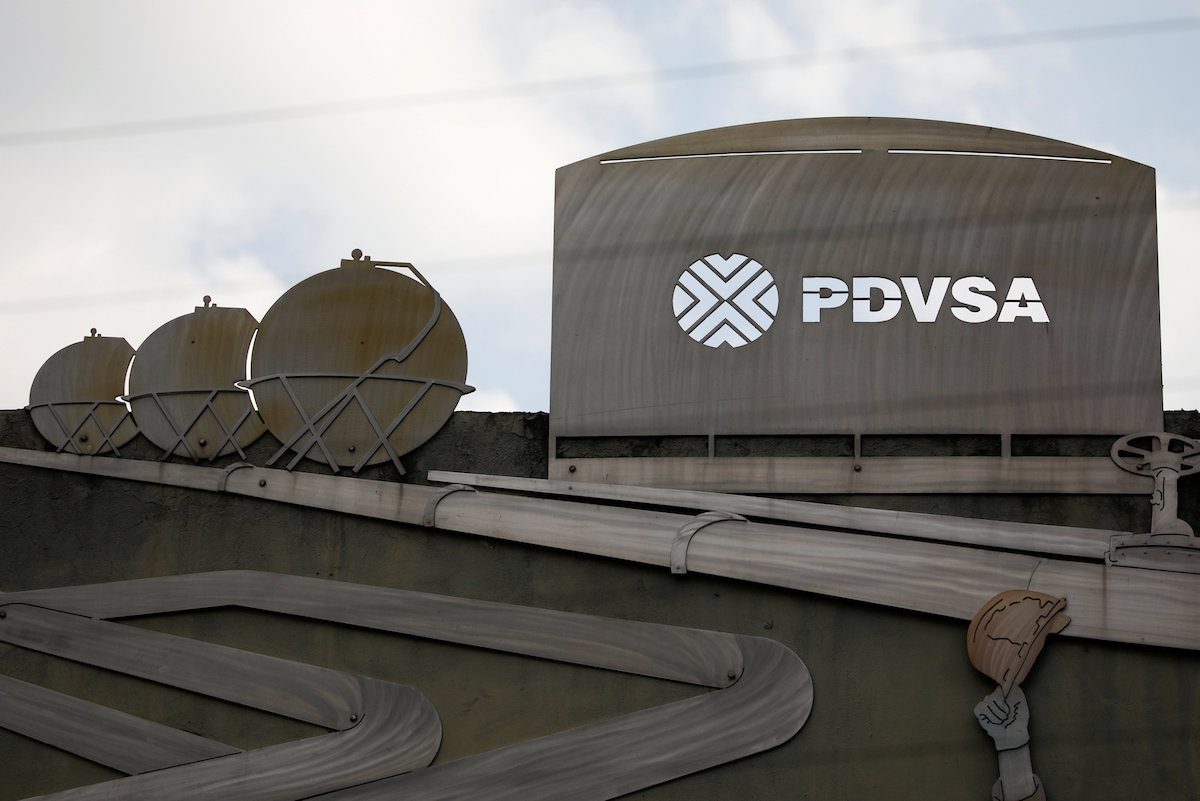U.S. Handing Over Seized Tanker to Venezuela
The United States is handing over to Venezuela a tanker that it seized this month, two U.S. officials told Reuters on Wednesday.

Updated: May 12, 2022 (Originally published September 9, 2020)

By Efrain Otero and Jonathan Saul SAN ANTONIO DE LOS ALTOS, Venezuela/LONDON, Sept 9 (Reuters) – A ngry Venezuelans are once again stuck in long service station lines due to rationing by President Nicolas Maduro’s government, which is awaiting fuel tankers on their way from Iran to the oil-rich but fuel-starved South American nation.
Venezuela’s refineries have nearly halted operations due to years of underinvestment while U.S. sanctions meant to force the ruling Socialist Party from power have severely restricted fuel imports, leaving Maduro dependent on ally Iran for gasoline.
Three tankers that left Iran in August are en route to Venezuela but are expected to take a long route around the horn of Africa, where it is easier to keep satellite tracking systems off to avoid U.S. authorities, according to two shipping industry sources.
In Venezuela, fuel lines are snarling for blocks and irate drivers are waiting hours or even days. Many leave empty-handed because gasoline runs out before they can fill up.
Some drivers said sales were being rationed at 20 to 30 liters per person.
“We have improvised bathrooms here and brought food from home,” said Esperanza Gonzalez, a 51-year old engineer in the Caracas suburb of San Antonio de los Altos. “Gasoline never arrived at the station yesterday, so we closed the street to see if authorities would come. Without gasoline, how do you move? How do you work?”
Venezuela needs 50,000 to 70,000 barrels per day (bpd) of gasoline during coronavirus lockdown, according to independent estimates.
But state oil company PDVSA is capping distribution at 30,000 bpd, with one-third going to the central region that is home to the capital, Caracas, according to union leader Ivan Freites and two industry sources who asked not to be identified.
The information ministry and state oil company PDVSA did not immediately reply to requests for comment.
The three tankers carrying around 820,000 barrels turned their transponders off before setting sail and have not passed the Suez Canal, according to Refinitiv Eikon.
“It’s likely that these three Iranian tankers will go via Africa,” said Omer Primor of maritime intelligence company Windward. “It is not likely that they will go through the Suez Canal. The Canal authorities are pretty strict when it comes to AIS transmissions.”
Completing that route would take at least another month, according to the vessels’ trajectory and size.
The shipment would meet Venezuela’s fuel needs for about a month under the current rationing scheme, but less than two weeks if it were sold without restrictions.
Four tankers carrying Iranian fuel bound for Venezuela in defiance of sanctions ended up transferring their cargoes last month to other vessels in response to a warrant for seizure obtained by the U.S. Department of Justice.
While waiting for more imported fuel to come, PDVSA is trying to restart key processing units at its refineries to produce motor fuel after receiving parts and equipment from Iran this year, but the effort has only been enough for producing low-octane gasoline intermittently. (Writing by Marianna Parraga Editing by Brian Ellsworth, Daniel Flynn and David Gregorio)
(c) Copyright Thomson Reuters 2020.
This article contains reporting from Reuters, published under license.

Sign up for gCaptain’s newsletter and never miss an update

Subscribe to gCaptain Daily and stay informed with the latest global maritime and offshore news
Essential news coupled with the finest maritime content sourced from across the globe.
Sign Up